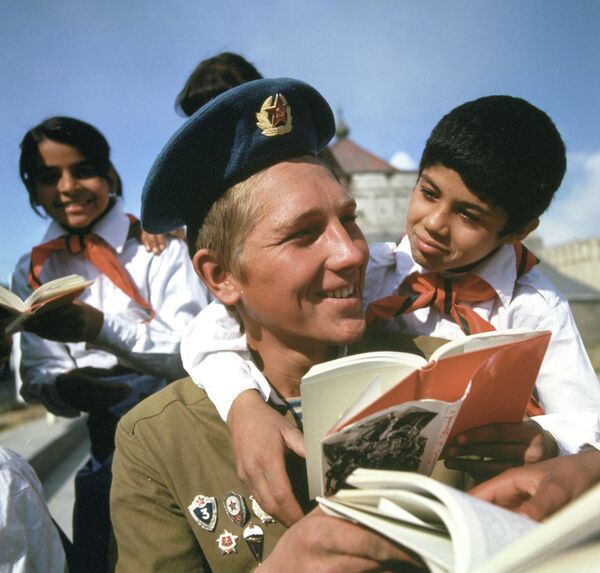The Soviet invasion of Afghanistan was not a surprise for Western powers, who managed to secure U.N.'s condemnation of it and agreed to support the Afghan resistance movement, new files from Britain's National Archives to be officially released on Thursday show.
The most remarkable government documents dating back to 1980 will be declassified on Thursday, following the expiry of a 30-year confidentiality period. More than 20 folders of shorthand reports and letters written by British diplomats and officials in the wake of the 1979 Soviet troop deployment in Afghanistan are among the files to be released.
The documents prove that the West was aware of the Soviet operation, although did not understand well its purpose.
A report from a meeting between U.S. President Jimmy Carter and British Prime Minister Margaret Thatcher on December 17, 1979, shows them discussing satellite pictures which demonstrate Soviet troop deployment in Kabul. The meeting took place just 10 days before Soviet special forces stormed the Tajbeg Palace in Kabul, killing Afghan President Hafizullah Amin.
Thatcher agreed to Carter's proposal to provide London with CIA reports on Soviet activities in Afghanistan, the document shows.
On December 20, a high-ranking Foreign Office diplomat expressed his concerns over the operation to the Soviet minister-counselor in London, who appeared bewildered by this address and asked the diplomat not to call the operation "intervention," another file says.
After Soviet diplomats officially notified the British authorities about the deployment of troops in Afghanistan, the Foreign Office head, Peter Carrington, sent a telegram to the British embassy in Moscow, in which he called on British diplomats to make the Soviets feel "consequences" of their activities.
The British government strongly condemned the invasion, released files show. Thatcher sent a letter to Soviet leader Leonid Brezhnev, urging him to immediately withdraw troops from Afghanistan.
Ahead of the emergency meeting of NATO top diplomats on December 31, the British government was trying to persuade Bangladesh to initiate international condemnation of the Soviet operation in order to avoid accusations of a new Cold War campaign by the West against the Soviet Union, the documents show.
In mid-1980, a secret meeting between U.S., British, French and German top diplomats took place in Paris, during which they discussed their support of the Afghan resistance movement.
Zbigniew Brzezinski, the U.S. president's national security advisor, proposed supplying Afghan militants at the Afghan-Pakistani border with missile systems to help them fight Soviet troops, the files indicate.
Arms supplies to Afghan insurgents and their training were also in the agenda during another secret meeting in London in February 1980.
Carter has compared the Afghan campaign with the 1968 Soviet invasion of Czechoslovakia, while British diplomats have seen much in common between the operation in Afghanistan and the U.S. campaign in Vietnam.
The British government believed that the Soviet invasion in Afghanistan demonstrated three main features of Soviet foreign policy: opportunism, cruelty and secretiveness, the document say.
LONDON, December 30 (RIA Novosti)




